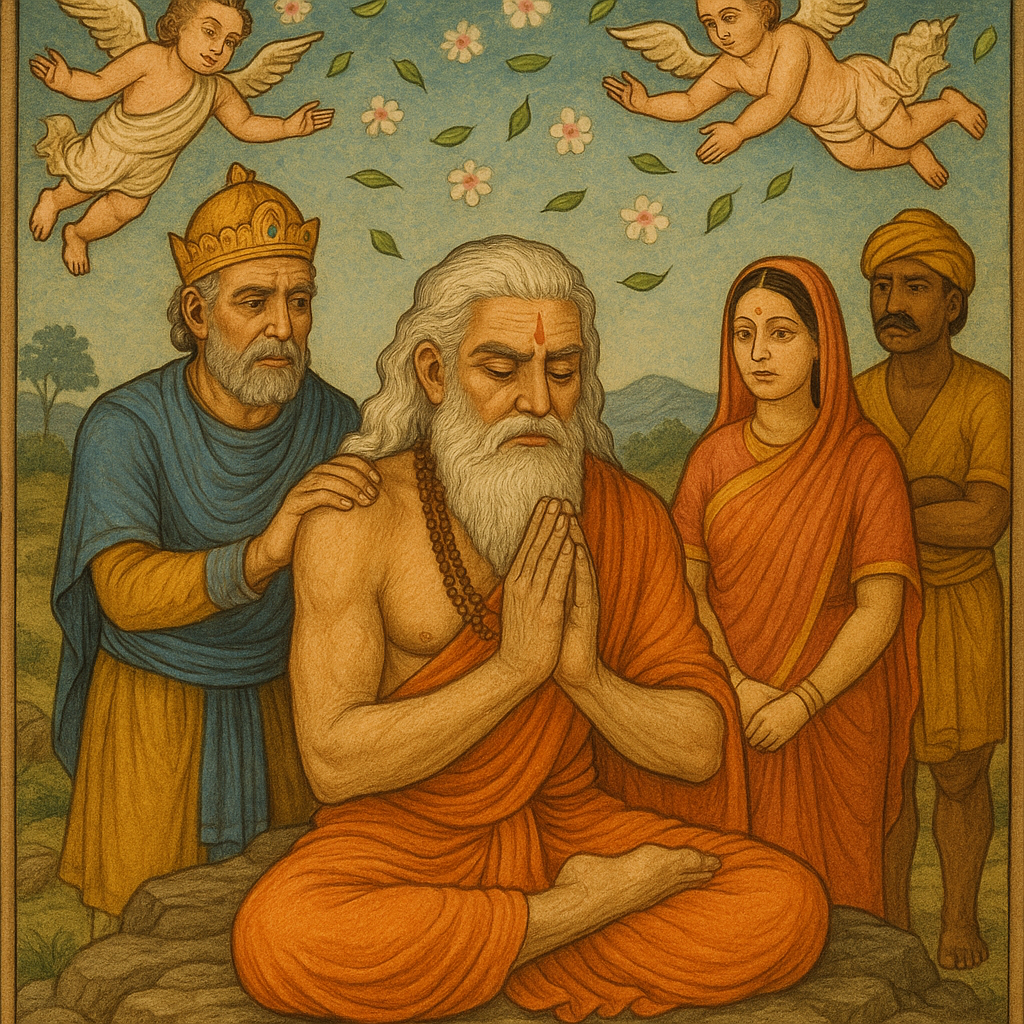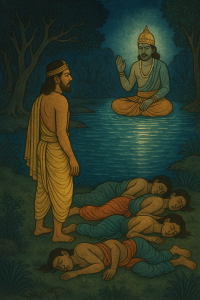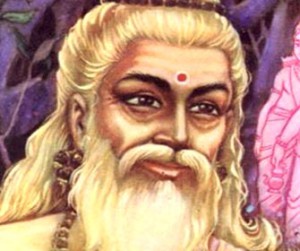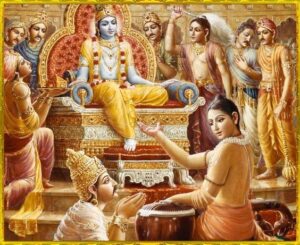The Noble Son of Gaṅgā
Bhīṣma, originally named Devavrata, was the powerful son of King Śāntanu and the river goddess Gaṅgā. Endowed with all virtues, he mastered the Vedas and weapons and was beloved by all.
Śāntanu’s Desire and Devavrata’s Sacrifice
When Śāntanu desired to marry a fisherman’s daughter, her father insisted her son become the heir to the throne. Devavrata, out of pure love for his father, renounced his claim to the kingdom.
But this was not enough—the father feared that Devavrata’s children might later contest the throne. So, in a historic vow, Devavrata promised lifelong celibacy, renouncing marriage and progeny forever. The gods showered flowers upon him and declared him “Bhīṣma”—the one who took a terrible vow.
Life of Service and Chivalry
Bhīṣma remained a lifelong servant of Hastināpura’s throne, never taking it for himself. He protected the kingdom, mentored princes, and upheld dharma even in the face of great turmoil, including the eventual conflict of Kurukṣetra.
Lessons to Be Learned
1. The Spirit of Sacrifice is the Heart of Dharma
Bhīṣma’s vow shows how personal renunciation for the welfare of others brings honor not only in this world but also in the eyes of the Supreme. Śrīla Prabhupāda often emphasized that real heroism is not in warfare but in conquering lust and selfishness for a higher cause.
2. Celibacy (Brahmacarya) Protects the Spiritual Path
Bhīṣma’s vow of celibacy empowered him with spiritual strength and mental clarity. As Bhaktivinoda Ṭhākura states, celibacy is not repression but divine protection for one aspiring to serve God purely.
3. Gratitude to Parents is a Divine Virtue
Devavrata’s sacrifice for his father’s happiness embodies the principle of filial devotion. Respect for one’s elders and gratitude to those who nurture us are cornerstones of Vedic civilization and devotional life.



